MercoPress. South Atlantic News Agency
Economy
-
Tuesday, May 17th 2011 - 23:12 UTC
Argentina/Brazil meet next week to address trade differences
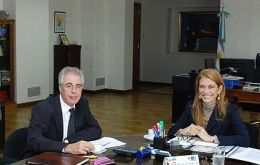
Argentina and Brazil agreed Tuesday to resume ‘constructive’ trade negotiations to overcome the current bilateral dispute which surfaced following the latest protectionist measures that threaten exports from the two main Mercosur partners.
-
Tuesday, May 17th 2011 - 17:39 UTC
Brazil non automatic import licences on blankets from China and Uruguay

Brazil announced it was imposing non automatic import licences on synthetic fibre blankets from Paraguay, Uruguay and China, according to an official communiqué from the Brazilian Ministry of Development, Industry and Foreign Trade released Tuesday.
-
Tuesday, May 17th 2011 - 15:42 UTC
Brazil insists with an emerging economy Managing Director for the IMF
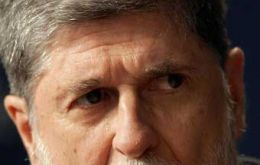
Brazil’s former Foreign Affairs minister Celso Amorim said that the next IMF Managing Director must come from an emerging economy if Dominique Strauss-Kahn, currently in custody in New York on alleged rape charges finally looses his job.
-
Tuesday, May 17th 2011 - 15:35 UTC
Brazilian banks and funds create company to build deep-water rigs for Petrobras
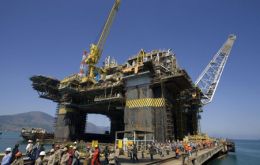
A group of Brazilian banks and funds have created a company called Sete Brasil that will build seven deep-water rigs for state-run oil company Petrobras offshore exploration campaign, Petrobras announced on Monday.
-
Tuesday, May 17th 2011 - 15:31 UTC
Brazil’s Vale wants to become world leader in nickel production
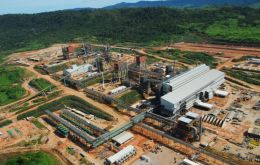
Brazil’s Vale, the world’s leading exporter of iron ore is moving strongly into other minerals with the opening of its first nickel operation in Onca Puma to the southeast of Pará state which is considered one of the largest ferronickel production plants in the world.
-
Tuesday, May 17th 2011 - 15:21 UTC
Potential candidates to succeed Strauss-Kahn as head of the IMF
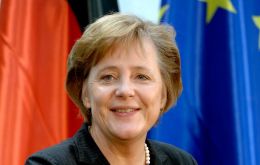
Dominique Strauss-Kahn, (DSK) the head of the International Monetary Fund, may be forced to leave his post after being accused of trying to rape a maid in his New York hotel room. IMF is currently under John Lipsky Acting Managing Director.
-
Tuesday, May 17th 2011 - 05:58 UTC
Argentina/Brazil agree to attempt dialogue to overcome latest trade dispute
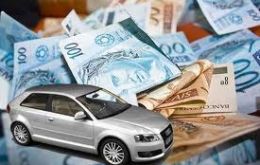
Argentine Minister for Industry, Debora Giorgi will meet in coming hours with Brazilian Ambassador, Enio Cordeiro, to schedule a series of meetings to address trade disputes between the two neighbouring countries and main Mercosur associates.
-
Tuesday, May 17th 2011 - 05:51 UTC
China ready to increase trade and investments in Brazil but infrastructure lacking
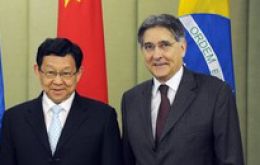
China moved to smooth economic relations with Brazil on Monday, saying it was open to more Brazilian exports and that Chinese firms will broaden their investments in the country.
-
Tuesday, May 17th 2011 - 01:15 UTC
Budget dispute forces US to appeal to pensions’ funds to pay the country’s bills

United States reached the legal limits of its borrowing authority as a top Republican increased his party's demand for deep spending cuts as part of any increase. The remarks by Representative Paul Ryan, the top budget writer in the House of Representatives, underscored the divisions that Republicans and Democrats will have to overcome in order to raise the 14.3 trillion US dollars debt limit and avoid a default that would roil markets across the globe.
-
Tuesday, May 17th 2011 - 00:53 UTC
South Korea and Brazilian lawmakers committed to expand links with Mercosur

Parliamentary leaders of South Korea and Brazil agreed Monday in Seoul to put forth efforts to promote economic ties between the two nations in the framework of Mercosur, through closer interactions at the parliamentary level.
